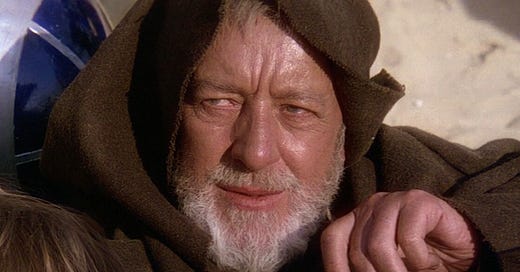The New Climate Reality
The dramatic shift in expectations for climate futures can't be ignored forever
Last week John Kerry, the U.S. Special Presidential Envoy for Climate, said in a speech at the New York Climate Summit:
“We're currently heading towards something like 2.4 degrees, 2.5 degrees of warming on the planet”
Let’s compare that to what Kerry said in another speech almost exactly 2 years before, in September 2021:
“Currently, as we’re talking today, we are regrettably on course to hit somewhere between 3, 4 degrees at the current rate.”
Kerry’s latest views on projected global temperature change has no doubt been informed by the latest net-zero assessment of the International Energy Agency, released to the public yesterday, which projects a median warming in 2100 under “stated policies” of ~2.4 degrees Celsius, as you can see in the figure below.

Kerry’s large change in outlook — from 4C to 2.5C or less — will come as no surprise to readers here, as for years I’ve been talking about the incredible shift in expectations for the future. Despite the growing recognition that our collective views of the future have changed quickly and dramatically, this change in perspective — a positive and encouraging one at that — has yet to feature in policy, media or scientific discussions of climate.
That silence can’t last, as reality is persistent.
A few years ago the Associated Press noted that climate scientists were promoting a new slogan:
“Every tenth of a degree matters,” is a phrase that climate scientists around the world keep repeating.
I get the sentiment — Even though the world is going to fly by the 1.5C aspirational Paris temperature target, the world should still try to limit future global warming as much as possible. I agree.
However, if indeed “every tenth of a degree matters,” then the fact that we have shed an expected 15 or 16 tenths over the past few years (i.e., 4C —> 2.4C) should be a really big deal, right?
Right now, climate influencers are in a state of dissonance, grappling with the fact that our projected climate futures have become radically less dire while still trying to promote a public stance of “global boiling.”
Here are a few ways that I’ve observed climate influencers struggling with the new context:
Keep the apocalypse alive. Deny the change in outlook and hold on to the possibilities that extreme climate future might yet arrive — China’s coal? Carbon cycle surprises? Unknown feedbacks? Donald Trump? Anything?
Reality: It is always possible to create implausible scenarios of the future and pass them off as likely. Fortunately, scenario development is a central focus of researchers, and if they have a hard time coming up with plausible scenarios leading to apocalyptic outcomes, then we should take that seriously. There is always a basis for thinking through plausible worst-case outcomes, but that does not mean that they should be prioritized in policy or public debates.
It’s worse than we thought. Suggest that the climate impacts that we had expected at 4C or more are now expected at 2C. So while the numbers may have changed, really nothing has changed.
Reality: Clever, but no. The scientific reality is that the lower the expected warming levels, the greater the challenge in separating out the signal of human-caused climate change from the background variability of the climate system. This is not my conclusion, but that of the Intergovernmental Panel on Climate Change. Every tenth of a degree may matter in sloganeering, but it does not matter in climate model outcomes, particularly those that most directly affect people and ecosystems, like extreme weather. Expected climate change impacts have not all-of-a-sudden gotten worse in research.
Nothing to see here, move along. Just ignore the new expectations and plow ahead as we were, using RCP8.5 (or similar) as a baseline scenario to project a dramatic and scary climate future. No one will notice, TL;DR.
Reality: “These aren’t the droids you’re looking for” may get you out of Mos Eisley, but it is not going to defeat the Empire. Every time I see a new study or report using RCP8.5 as a baseline (which is to say, every day), I wonder, “How dumb do they think we are?” The longer the climate community ignores our changing expectations for the future, the greater the risks to the community’s credibility as people are not fools, and don’t appreciate being fooled.
There will no doubt be other strategies employed to resist acknowledging the new climate reality. I get it. Change is difficult and uncomfortable. And in this case, the change in expectations has profound implications for how we think about climate policy and politics.
But change is here. Who in the climate community is going to lead? Who will take a science-based approach to helping the world to understand, acknowledge and respond to our latest scientific understandings?
We are all waiting and watching.
Thanks for reading! Please share and like that little heart button. I welcome your comments, questions and suggestions. And of course, thanks for subscribing.





I can tell you that I have proposed such a piece to one of these and I was told that Hausfather and Peters already have explained this and everyone already knows.
They will never admit the apocalypse is not coming. I have watched this show for over 50 years and the message has not changed.